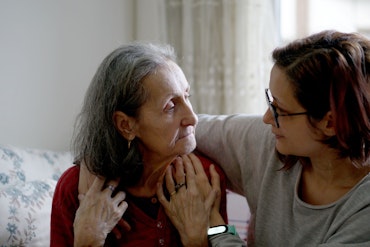What are you waiting for?
Age is not a barrier to becoming an organ and tissue donor
The recent DonateLife Week helped raise awareness of the importance of organ and tissue donation and encourages Australians to join the Australian Organ Donor Register (AODR). This year the theme was ‘What are you waiting for?’, and while it was a week of promotion and campaigning, you can sign up to the Australian Organ Donor Register at any time. .
Age is not a barrier to becoming an organ and tissue donor, as each potential donor is assessed on an individual basis. Research undertaken by the Organ and Tissue Authority shows that the majority (78%) of Australians aged 65+ years are willing to donate organs and tissues, yet 37% assume they are too old to be considered for organ and tissue donation. People in their 70’s and 80's have saved the lives of others through organ and tissue donation.
Donation is a very rare event – in fact less than 1% of all Australians will die in hospital in the specific circumstances where organ donation is possible. That’s why every opportunity to donate organs and tissue should be considered, regardless of age.
Less than a third of Australian adults are on the AODR, despite the majority of Australians being willing to donate their organs. By discussing your wishes and registering your decision, your family is in no doubt of your decision to save the lives of others.
In 2015, organ donation proceeded in 91 per cent of cases where the deceased was a registered donor. However, if the deceased was not registered and the family had no prior knowledge of their wishes, the percentage drops to just 52.
Every family who is offered the opportunity of donation is able to receive dedicated support from DonateLife Donor Family Support Coordinators, whether or not donation proceeds. The quality of care for a potential donor at the end of his or her life, and the wishes of their family, is always the foremost consideration of those involved, and is never compromised by the potential for organ and tissue donation.
With more than 1,500 people waiting for a transplant, donation opportunity will save more lives.
The AODR is the only national register to record your donation decision. There are several ways to register or update your details:
- via your myGov Medicare online account or the Express Plus Medicare mobile app
- visit donorregister.gov.au to register online or download a form
- call the donor register on 1800 777 203
If you previously registered your donation decision when applying for or renewing a driver’s licence you need to join the AODR to make sure your details are current (NB only South Australian residents can register via their driver’s licence registry).























